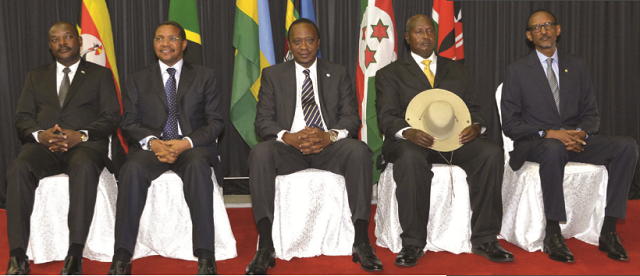
EAC member states must do something flying geese do very well: have a leader
Burundi’s recent attempt to join the Southern African Development Community (SADC) has been blocked. But it raises questions about what EAC member states should do about its cold neighbour.
Burundi, which has been a member of the East African Community (EAC) since 2007 recently applied alongside Comoros for membership in SADC.
Augustine Mahiga, the Tanzanian minister for Foreign Affairs and East African Cooperation said Burundi’s application had been rejected until the country “puts its house in order first”. That is in reference to the chaotic political situation in the country.
On the face of it, Burundi’s desire to join SADC appears an indictment of the lack of tangible benefits for Burundi from the EAC. The same could possibly be said for other EAC member states, despite the official EAC website’s proclamation that the EAC integration process is in “full swing”and is being “fast-tracked” with work on the EAC customs union, Common Market, which was established seven years ago, and the East African Monetary Union Protocol.
Burundi clearly doubts the proclamation being made about the EAC; a regional body comprising 150 million citizens with a combined GDP of $146 billion. But Burundi is also playing its cards very close to its chest regarding its reasons for wanting to join SADC.
Jean Bosco Barege, the Burundian ambassador extraordinary and plenipotentiary to Uganda gave The Independent a curt answer when asked about his country’s interest in joining SADC.
“I don’t have information about that,” he said.
In the absence of fact, speculation fills the vacuum.
Isaac Shinyekwa, a trade and regional integration research fellow at the Makerere University-based Economic Policy Research Centre (EPRC) says Burundi has had its political challenges in the recent past and this move has political undertones. One such hint could be Burundi’s political struggles with neighbours Rwanda. Nkurunziza accuses Rwanda of supporting the rebels fighting against his government. Rwanda denies it. Burundi has closed its border with Rwanda over the issue. Bujumbura has in the recent past also stopped its key government officials from attending high profile meetings in the region due to perceived differences with its EAC partners.
Enoch Twinoburyo, a PhD fellow at the University of South Africa also says Burundi’s decision appears to be motivated more by politics than economics. He says President Nkurunziza has felt isolated in the EAC since he stuck to his third term scheme which plunged his country into turmoil.
Many observers of East African politics share this sentiment. By applying to SADC, Burundi was playing hardball in a bid to attract attention and be courted with concessions. Burundi has been a cold member of the EAC for some time and has stayed away from major events and activities.
But Dr. Frederick Golooba Mutebi, a researcher and analyst who is well versed with both the politics and socio-economic affairs of eastern Africa says it is impossible to remove economics from the politics when analyzing Burundi’s choice of one regional bloc over another.
“It might be that given Burundi is Tanzania’s neighbour, and the latter is in SADC, Burundi would benefit from whatever advantages that accrue from being a SADC member,” he says.
“It could also be that Burundi is having a rather hard time in the EAC and wants to diversify its contacts and also extend its capacity to maneuver diplomatically,” he added.
Among EAC member states, Tanzania is also a member of SADC and Rwanda is a member of the Economic Community of Central African States.
 The Independent Uganda: You get the Truth we Pay the Price
The Independent Uganda: You get the Truth we Pay the Price


 Who is Pope Leo XIV?
Who is Pope Leo XIV?
